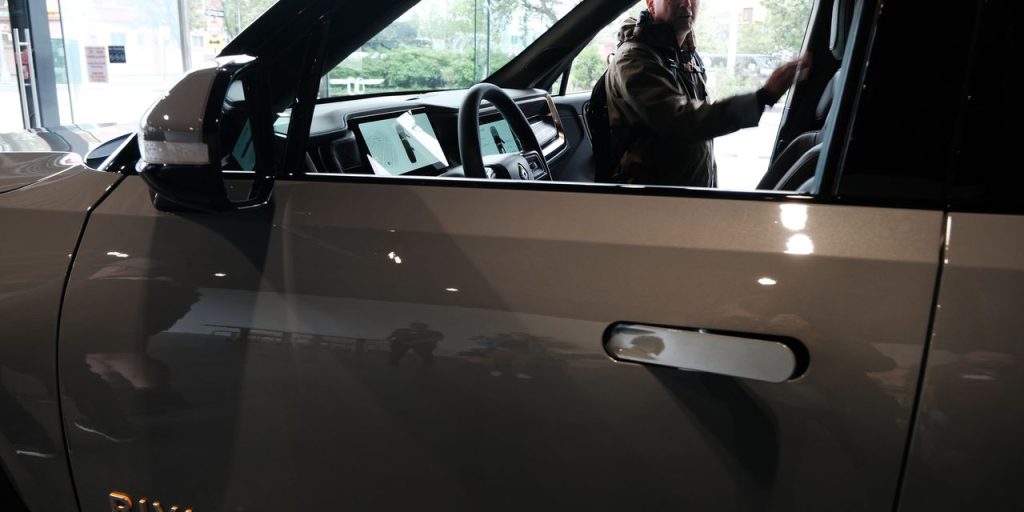Rivian Automotive Inc. late Tuesday posted a narrower quarterly loss and surprised Wall Street by raising its production guidance for the year and ending its exclusivity deal with Amazon.com Inc. for its delivery vans.
In a call with analysts following results, Rivian
RIVN,
+1.40%
executives also pushed back against fears of slower demand for EVs. In recent weeks, carmakers such as Ford Motor Co.
F,
-1.36%
and General Motors Co.
GM,
-2.40%
announced pauses or slowdowns in their EV investments.
Rivian is “deeply” convinced “that the entire automotive industry will be transitioning to electric over the next one to two decades,” Chief Executive RJ Scaringe said. “We’ve built and designed our business around this transition.”
In the short term, however, there are macroeconomic and geopolitical pressures impacting consumers and businesses, “most notably the increase in interest rates,” Scaringe said.
Also see: Lucid cuts production guidance, quarterly revenue falls
Rivian also amended its exclusivity deal with Amazon.com
AMZN,
+2.13%
to provide electric last-mile delivery vans, opening up for deals with other companies.
The vans, as well as software and services, can provide “value” for fleet customers, and Rivian is in “active discussions with a number of large potential fleet customers to launch pilot programs,” Scaringe said.
Rivian lost $1.37 billion, or $1.44 a share, in the third quarter, compared with a loss of $1.72 billion, or $1.88 a share, in the year-ago quarter. Adjusted for one-time items, Rivian lost $1.19 a share.
Revenue rose to $1.34 billion, from $536 million a year ago, mostly thanks to the delivery of 15,564 vehicles, Rivian said. Revenues from the sale of regulatory credits were minimal this quarter, the company said.
Rivian shares rose more than 2% immediately after the results, and added to gains as the call got underway.
Analysts polled by FactSet expected Rivian to narrow its per-share adjusted quarterly loss to $1.34 and report sales of $1.32 billion. Rivian’s sales topped $1 billion in the last quarter.
“We remain focused on ramping production and implementing core technologies designed to reduce cost and improve the customer offering,” Rivian executives said in a letter to shareholders accompanying results.
The company raised its production guidance for the year to 54,000, from a previous expectation of 52,000 vehicles, based on “the progress of our production ramp,” it said.
“We have also seen strong progress in our cost-reduction efforts,” it said. The company also lowered its forecast for capital expenditures for the year to $1.1 billion.
The company last month surprised Wall Street by offering $1.5 billion worth of convertible debt, a move that was swiftly condemned as a “gut punch to investors.”
Rivian is about to face more competition: Tesla Inc.
TSLA,
+1.33%
announced in October that it has penciled in Nov. 30 as the date it will start selling the Cybertruck, its unconventional-looking electric pickup.
The futuristic Tesla truck might not be direct competition with Rivian’s pickups and SUVs, which are marketed for the outdoors and rugged terrain, but it may eat away at the pool of those who desire, and can afford, a Rivian EV.
Rivian’s cheapest vehicles start at around $73,000, although the automaker is developing a second-generation vehicle that presumably will be cheaper.
Shares of Rivian have lost about 6% so far this year, contrasting with an advance of around 14% for the S&P 500 index
SPX
in 2023.
Read the full article here




